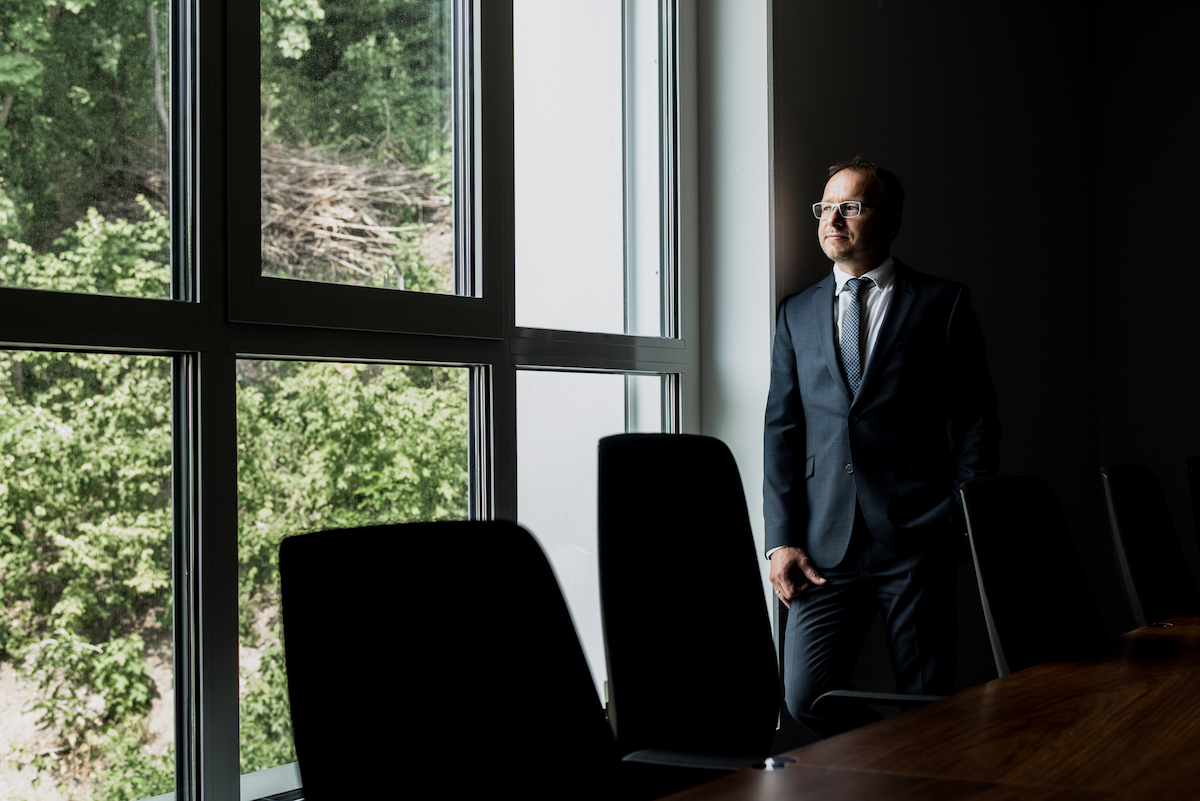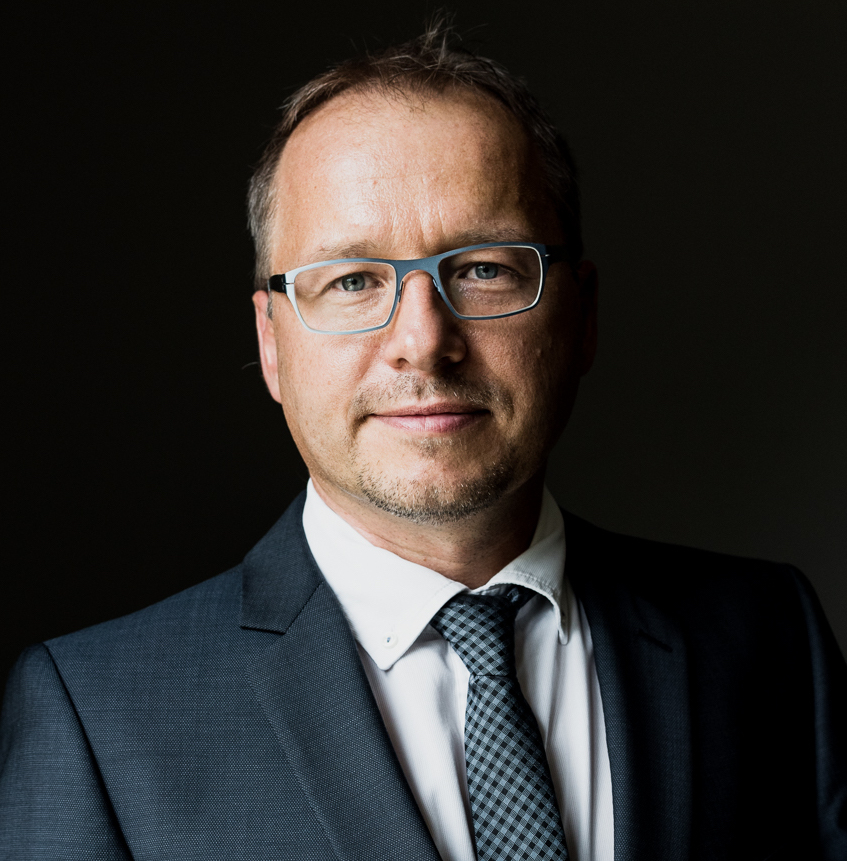Comedian Ricky Gervais poked fun at the paper manufacturing industry with his hit sitcom The Office, and his bumbling and awkward protagonist David Brent. The Slough-based branch of the fictional paper merchant Wernham Hogg was portrayed as an uninspiring and suppressive workplace.
Ludwig Krapsch spent his first 10 years of employment with a major (and real) paper manufacturer in Austria, and thankfully his experience was a far cry from that. In fact, the stimulating people-centred culture he was exposed to there helped shape the leader he is today.
Ludwig Krapsch creates a positive culture
Ludwig proceeded to join chemical solutions company Solenis (formerly Ashland Water Technologies) 20 years ago, and has now notched up four years as vice-president of the company’s paper and pulp sector across Europe, the Middle East and Africa (EMEA).

Ludwig is adamant that culture is as essential as innovation – and boasting a voluntary attrition rate of less than 1% during his time at the helm, it’s evident his employees are responding to the positive environment he is cultivating.
“As an Austrian citizen, I love to quote a very successful Austrian leader, Peter Drucker: ‘Culture eats strategy for breakfast.’ At the end of the day, companies grow or decline depending on the culture,” he explains.
“I have to compliment our CEO, John Panichella, for driving culture. He made it the number one priority on the global agenda for Solenis just one month after his arrival. This philosophy fits perfectly with my personal leadership style,” says Ludwig. “When I was given my first leadership role in Eastern Europe, it was important for me to create a culture of inclusion to ensure we not only maintained all the good talent we inherited with the merger between BetzDearborn and Hercules, but also to ensure everyone stayed motivated.”
Ludwig’s leadership style
Indeed, even the three main pillars of Ludwig’s leadership style relate directly to culture. “First, my staff need to have trust and confidence in me,” he reveals. “The question I ask myself every week is, ‘Would I like to work for myself?’ I’d advise other leaders to do the same, and look at how they deal with their teams.
“Second, you need to be approachable. When people from the base level don’t come and contact you anymore, then you have lost the game. That’s important to me because I came from there; I started at the lowest possible end of this company and worked myself up during the 20 years I’ve been here. If you continually fail to listen to people’s concerns, they’ll stop coming to you. You become distant from your team, and you can’t run the business anymore.

The question I ask myself every week is, ‘Would I like to work for myself?’ I’d advise other leaders to do the same, and look at how they deal with their teams.
“The third point is that motivation is key. I believe that good professionals need playgrounds to operate in, so I don’t recommend micromanaging,” he continues. “I delegate as much as possible to allow my experts the space to be creative and to grow.”
Ludwig is also advocating for greater diversity in the industry. He says there has been a gender imbalance for too long, and as part of the company’s global task force, he is looking to aid in the reversal of that trend.
“I think it’s a very male-heavy industry, and that applies to us as suppliers, and it also applies to our customers. We are working on this, because we see a tight correlation between how successful a team is and the level of diversity. The industry would certainly benefit from having more women involved, and it’s only going to bring our company better results too.”
Solenis Switzerland leads the way in innovation
With an inclusive culture comes a productive workforce, so it’s no surprise Solenis’s innovative solutions in the paper and pulp sector are leading the way. “The link between culture, employee satisfaction, and performance and results goes hand in hand,” he nods.
The link between culture, employee satisfaction, and performance and results goes hand in hand.
“We measure our innovation monthly by evaluating how much of our total sales come from technologies that are less than five years old. For this KPI, the industry benchmark is around 10%. In the last two years, more than 25% of our sales have come from technologies less than five years old.
“In order to outperform the industry benchmark by two and a half times, we need to ensure we develop what our customers need. We also need good and stable relationships, and we spend a lot of time and effort in our blueprinting efforts. This activity is completed with our customers and has delivered excellent returns. Obviously, it is also important that we have the talent in place to then launch the technologies to the right customers in the right way.”
Solenis Biobond Paper Sustainability Program℠
The Solenis Biobond. Improving the Sustainability of Paper℠ Program is one such advancement Ludwig can lay claim to. “We needed to find a solution for more efficient recycling of waste paper,” he says of the project.
“Imagine 1,000 kilograms of collected waste paper, of which 50 kilos is starch. In most cases, that starch would leave the paper factory through the effluent plant instead of being recycled and sold again into new paper by the paper manufacturer.
This equates to something like 1.4 million metric tonnes of starch lost annually. We had exclusive technology to prevent starch from degradation, and after one year of hard work we invented a method to ensure the majority of incoming starch was preserved, reused and recycled, leaving the paper mill as it should, with the paper.”
And according to Ludwig, that’s just the beginning. “Growth is in our DNA. On one hand, the strategy for organic growth is built on culture, new technologies and sustainability, and at the same time we keep our eyes open for further suitable acquisition candidates,” he explains. The world of paper is certainly a lot more exciting than it looks on TV.

